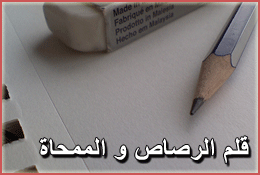-
We use (كِ) like in (أكرهكِ) to refer to a (feminine you), while (كَ) refers to the (masculine you).
There is no verb in Arabic that ends with (ة), however, your example (حسبتُكَ) is: (حسبتُ) which means (I thought), and the (كَ) at the end is (you), so the translation is (I thought you), same thing you could say (كرهتك) which is (I hate you), so there are two pronouns (ت and ك) in those examples not just one.
If you want to use (him, her and them) then here they are with examples:
Him, ـه: I hated him كرهتُه
Her, ها: I hated her كرهتُها
Them, هم: I hated them كرهتُهم
Hope that is clear enough.
-
thank you for clearing my doubt.
But what about the word look - 'شوف'.
How do we refer this to 'you' & 'me'.
For eg: I didn't see you.
You saw me. -
Although (shoof شوف) is colloquial, the rule still works with it. (I see you) is (شفتك), (I didn't see you) is (ما شفتك), and (You saw me) is (شفتني). The 7araka of the the (ت) is very important, because (شفت) is colloquial, you don't see the 7arakah, but if I use the classical word for (see) which is (رأى) then (I see you) is (رأيتُكَ) while (you saw me) is (رأيتَني).. I hope you could see that (رأيتُ) is (I saw), and (رأيتَ) is (you saw).
-
yes, but why the 'ت'? Can't it be 'شوفك' for 'saw you' or 'شوفني' for 'saw me' instead of شفتك and شفتني.
My doubt is that why we add ت?
-
For the sentence to be complete, you need (subject + verb + object) like (He + kicked + the ball), same thing here you can not say (saw you) because the subject is missing, it should be (I saw you) and (I) is replaced by the (ت) in Arabic. So (شفتك) is (شفت verb + ت subject + ك object).
Hope that clarifies it. -
But then in the word (أكرهكِ) - 'alif' is representing 'I' and the end (كِ) refers to (feminine you).
So can't we write اكرهتك i.e adding (ت)??
OR cant we write اشوفك i.e I-saw-you (subject-verb-object) -
I see now where you get confused.
The present tense verbs take the subject indicator at the beginning, like (أكره, يكره, تكره, نكره) while the past tense verbs take the subject pronoun at the end, like (كرهتُ I hated, كرهتَ you hated, كرهنا we hated). The object pronoun (ك, ـه, ـها) in past and present comes at the end of the verb, like (يكرهكِ he hates you, كرهتُكَ I hated you).
-
Ok now i get it! Thanks a lot for your help Ehab!
-
so this means اشوفك represents 'I-see-you'. Right?
And also above you said (I see you) is (شفتك) - i.e Shoofatuk right? not Shoofatak -
Yes, (أشوفك) is I-see-you.
(شفتك) is (I saw you) and it is pronounced (shoftak). -
I'm sorry for asking again & again ...but shouldn't it be shoofatuk for (I) and shoofatak (you) because the 'damma' comes on ت or 'I' and 'Fatha' comes on ت for 'you'
-
In my second comment I highlighted that (شفت) is colloquial, and it just happened that the grammar worked with it. That's why I used the example (رأيت) because it is classical Arabic and proper grammars can be applied better into it.
(شفت - I saw you) is pronounced as (shoftak) in the street, however, if we choose a classical word like (سَمِعَ same3a) then you can apply the way you said the (ت) would be, which is (سمعتُه same3tuho - I heard him) and (سمعتَه same3taho - you heard him). -
Thank you very much Ehab!
Upper Intermediate - Pencil and the eraser
| April 14th, 2009 | 1 comment |
We have a dialogue today between a pencil and an eraser! What do you think they'll talk about? I can tell you that it's funny and instructive. As well as this, we go through all the practical vocabulary so tune in.
 |
 MP3 Download MP3 Download
 PDF Transcript PDF Transcript
|
 Audio Transcript Audio Transcript Exercise Exercise Dialogue Dialogue |
|
| Basic | Premium | |
|---|---|---|
Join the Discussion

Random Word
متزوج |
|

Advertisement



For verbs, if referring to myself, i use 'ني' at the end. For eg. in this lesson 'كرهني'
If referring to 'you' we use 'كِ' at the end. for eg: 'كرهكِ'.
Is this true for all verbs. And also is there any verb ending with 'ة'.If so, how do we refer those to 'me' and 'you'.
For eg: In one lesson you told ... 'Thought you' = 'حسّبتك'. Why did we use 'تك' here instead of 'ك'.
Also the above verbs that i gave egs, how to refer to 'he', 'she', 'them'. Eg; hate him, hater her, hate them.